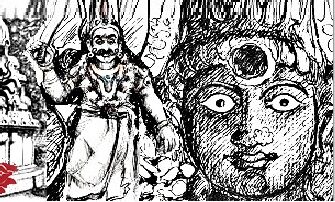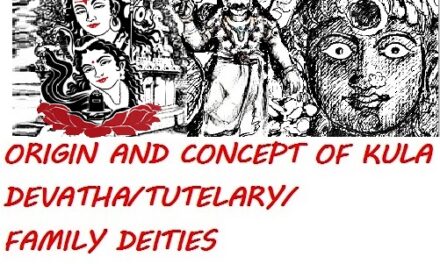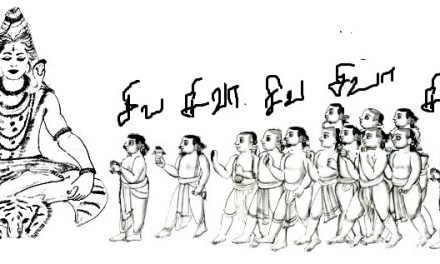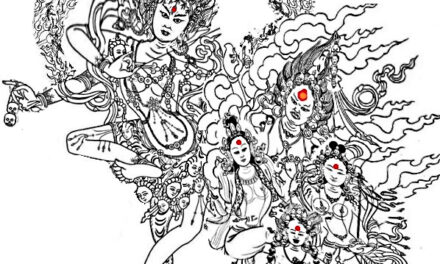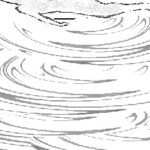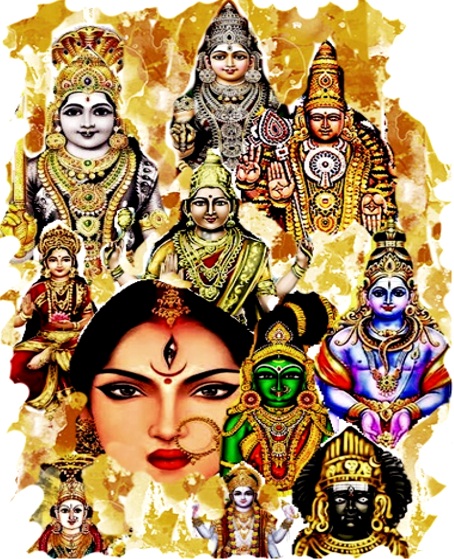 KULA DEVATHA OR TUTELARY/FAMILY DEITIES:
KULA DEVATHA OR TUTELARY/FAMILY DEITIES:
ORIGIN AND CONCEPT – 4
-Santhipriya-
References
Pieces of information found in the following sites, folk lores, discussions with temple Pundits and elders of yester year generations helped me in compiling the above article.
- https://navrangindia.blogspot.com/2018/04/twenty-important-facts-about-worshiping.html
- https://www.wisdomlib.org/definition/kuladevata
- http://vaisshnav.blogspot.com/2015/12/kula-deivam-do-we-need-to-pray-to-kula.html
- https://www.scribd.com/document/401113410/Cowrie-Astrology
- https://indusladies.com/community/threads/want-to-know-about-your-kuladevatha-post-here.159893/page-26
- https://www.wattpad.com/1003664371-the-forbidden-princess-of-madurapuri-
- https://en.wikipedia.org/wiki/Tutelary_deity
- https://www.myindiamyglory.com/2018/07/06/mahabharata-war-7500-years-ago-what-astronomical-calculations-say/
- https://thevedicfoundation.org/bhartiya_history/mahabharat.htm
- https://en.wikipedia.org/wiki/Kuladevata
- https://shrigurumaharishi.org/2019/10/03/why-should-we-worship-our-kuladeivam-family-deity
- https://www.epoojastore.in/index.php?route=news/article&news_id=1100
- https://thtsearch.com/content/Kuladevi/
- https://www.historydiscussion.net/history-of-india/early-vedic-period/the-early-vedic-period/6244
- https://ramtarak.com/5-amazing-facts-to-pray-kuladevata/
- https://karaikudiexpress.wordpress.com/2020/08/02/kula-deivam
- https://en.wikipedia.org/wiki/Household_deity
- https://www.indiamart.com/proddetail/worship-of-family-deity-helps-you-in-your-hardships-22258447648.html
- https://www.tamilbrahmins.com/threads/brahmins-kula-devatha.3111/
- https://en.wikipedia.org/wiki/God_in_Hinduism
- https://sound-hindu-god-photo.blogspot.com/2009/08/god-of-kuladevata.html
- https://www.toppr.com/ask/question/who-was-the-head-of-family-in-old-family-trend/
- https://core.ac.uk/download/pdf/334948462.pdf
- https://pune.gen.in/india/family-life-aryans-rig-vedic-period/4449/
- https://brainly.in/question/48649917
- https://blog.ipleaders.in/historical-perspectives-hindu-law-inheritance/
- https://en.wikipedia.org/wiki/Venkateswara
- https://www.space.com/25126-big-bang-theory.html
- https://www.hinduismfacts.org/hindu-scriptures-and-holy-books/manusmriti/
- https://www.space.com/13320-big-bang-universe-10-steps-explainer.html
- https://en.wikipedia.org/wiki/The_Five_Ages_of_the_Universe
- https://en.wikipedia.org/wiki/Universe
- https://thesciencebehindit.org/how-did-the-universe-begin-how-will-it-end/
- https://oceanservice.noaa.gov/facts/why_oceans.html
- https://socratic.org/questions/how-were-the-earth-s-oceans-formed
- https://en.wikipedia.org/wiki/Human_evolution
- https://flexbooks.ck12.org/cbook/ck-12-college-human-biology-flexbook-2.0/section/27.7/primary/lesson/chapter-7-answers-chumbio/
- https://www.templepurohit.com/origin-lord-shiva-lord-vishnu/
- https://www.kanyakumari-info.com/blog/question-how-brahma-vishnu-mahesh-born.html
- https://www.hinduwebsite.com/sacredscripts/hinduism/dharma/manusmriti_1.asp
- https://www.bbc.com/future/article/20220105-what-existed-before-the-big-bang
- https://www.quora.com/Is-it-possible-that-Para-Brahman-divided-himself-in-three-energies-called-Brahma-Vishnu-and-Shiva
- https://ia800205.us.archive.org/32/items/LingaPuranaJ.L.ShastriPart1
- https://en.wikipedia.org/wiki/Mahadevi
- https://www.learnreligions.com/what-is-shiva-linga-1770455
- https://www.tutorialspoint.com/what-is-the-concept-of-shiva-linga-and-why-it-s-worshiped-more-than-his-own-idol
- https://www.linkedin.com/pulse/sacred-sanctity-divine-goddess-maha-lakshmi-finance-wealth-osk-reddy
- https://www.exoticindiaart.com/article/dasavatar/
- http://muneshkumarkella.blogspot.com/2014/06/shri-vishnu-incarnations-dashavatar-24.html
- https://en.wikipedia.org/wiki/Parvati
- https://janetpanic.com/what-is-difference-between-brahman-and-para-brahman
- https://www.anaghadatta.org/about/lord-dattatreya-guru-parampara/
- https://www.thekundaliniyoga.org/hindu_gods/shridattaguru/shri_datta_guru_origin_avatars_sadgurus_datta_lineage.aspx
- http://sarojbala.blogspot.com/2021/02/concept-of-yugas-re-examined.html
- https://www.cs.ubc.ca/~goyal/age_of_universe.php
- https://docs.wixstatic.com/ugd/f0633e_99240cde252e424cbd5b71c832d8dfef.pdf?index=true
- https://en.wikipedia.org/wiki/Yuga_Cycle
- https://www.wisdomlib.org/hinduism/book/the-brahmanda-purana/d/doc362847.html
- http://www.findmessages.com/now-about-the-four-yugas-its-characteristics
- https://www.hinduwebsite.com/timecycle.asp
- https://m.dailyhunt.in/news/nepal/english/the+sentinel-epaper-senteng
- https://www.iimb.ac.in/sites/default/files/inline-files
- https://en.wikipedia.org/wiki/Hindu_units_of_time
- https://docs.wixstatic.com/
- https://en.wikipedia.org/wiki/Saptarishi
- https://pravase.co.in/gyan-detail/82/saptarshi-seven-sages-sanatan-dharma-vedic-time
- https://www.researchgate.net/publication/335929735_Article_23_Ancient_Saints_of_Hinduism_-Saptarishi
- https://en.wikipedia.org/wiki/Gotra
- https://www.britannica.com/topic/gotra
- http://www.vedah.net/manasanskriti/Brahmins.html#13
- https://ramanuja.org/sri/BhaktiListArchives/Article?p=aug95%2F0027.html
- https://humanorigins.si.edu/education/introduction-human-evolution
- https://www.quora.com/Are-Brahmins-are-born-from-Brahmas-head-Kshatriyas-from-this-gods-arms-vysyas-from-this-creators-thighs-and-shudras-from-his-feet
- https://zeenews.india.com/spirituality/decoding-the-story-behind-four-faces-of-lord-brahma_1956584.html
- https://en.wikipedia.org/wiki/Primate
- https://humanorigins.si.edu/evidence/human-evolution-interactive-timeline
- https://ia802900.us.archive.org/0/items/acc.no.25554srigarudapuranam1968/Acc.No.25554-Sri%20Garuda%20Puranam-1968.pdf
- https://www.quora.com/How-can-one-know-that-there-are-4-lakh-species-of-human-being-out-of-84-lakhs
- https://www.quora.com/Who-discovered-that-there-are-84-lakhs-varieties-of-living-being-present-on-earth
- https://iskcondesiretree.com/forum/topics/84-lakh-species
- https://en.wikipedia.org/wiki/Para_Brahman
- https://en.wikipedia.org/wiki/Devi
- https://www.tourmyindia.com/blog/famous-mythological-characters-hindu-sanatan-
- https://indianexpress.com/article/explained/raja-ravi-varma
- https://en.wikipedia.org/wiki/Tvashtr
- https://www.facebook.com/viswabramins/posts/in-the-vedaseditvishwakarma
- https://testbook.com/question-answer/the-religion-of-early-vedic-aryans-
- https://rmrl.in/wp-content/uploads/Genesis-of-Sun-Worship.pdf
- https://www.khanacademy.org/humanities/art-asia/beginners-guide-asian-culture/hindu-art-culture/a/principal-deities-of-hinduism
- https://www.britannica.com/topic/Hinduism/Deities
- https://damienmarieathope.com/2021/01/low-gods-earth-tutelary-deity-
- https://en.wikipedia.org/wiki/Mukhalinga
- https://www.indiastudychannel.com/experts/47537-information-about-mother-goddess-
- https://www.sidmartinbio.org/how-many-types-of-vishnu-are-there/
- https://www.profvk.com/22-3-temples-galore
- https://en.wikipedia.org/wiki/Village_deities_of_South_India
- https://en.wikipedia.org/wiki/Gr%C4%81madevat%C4%81
- https://en.bharatpedia.org.in/wiki/Village_deities_of_South_India
Several temple histories where divines manifested in human form to get curses revoked - https://www.indianetzone.com/27/evil_demon_spirits_hindu_mythology.htm
- https://en.wikipedia.org/wiki/Gr%C4%81madevat%C4%81
- Many stories from Shri P.R. Ramachander’s Blog: http://villagegods.blogspot.com/
- https://en.wikipedia.org/wiki/Village_deities_of_Sri_Lankan_Tamils
- https://en.wikipedia.org/wiki/Tutelary_deity
- https://navrangindia.blogspot.com/2018/04/twenty-important-facts-about-worshiping.html
- https://www.wisdomlib.org/definition/kuladevata
- https://hinduism.stackexchange.com/questions/12329/what-is-the-origin-of-kula-devata-or-family-deity
- https://hellenicfaith.com/tutelary-deities/
- https://www.tamilbrahmins.com/threads/brahmins-kula-devatha.3111/
- http://www.sanskrutionline.com/home/history.html
- http://vaisshnav.blogspot.com/2015/12/kula-deivam-do-we-need-to-pray-to-kula.html
- https://everything.explained.today/Tutelary_deity/
- https://www.hindu-blog.com/2015/08/goddess-kubjika.html
- https://www.britannica.com/topic/Archon-Gnosticism
- https://www.rkaroma.com
- https://www.encyclopedia.com/environment/encyclopedias-almanacs-transcripts-and-maps/goddess-worship-goddess-worship-ancient-near-east
- https://www.missionkuldevi.in/en/2017/04/audichya-brahmin-samaj-gotra-kuldevi-list-history/
- https://www.facebook.com/groups/163154720690884/posts/906180419721640/
- http://www.sanskrutionline.com/home/history.html
- http://gsbkonkanis.weebly.com/kula-devathas.html
- https://srimad.org/?p=507
- https://krishnatoday.com/kuladevatha-and-krishna-devotees/
- https://ramtarak.com/5-amazing-facts-to-pray-kuladevata/
- https://chowdeshwaritemple.com/
- https://srivadapathirakali.org/sriambal.php
- https://hindi.webdunia.com/sanatan-dharma-niti-niyam/kuldevi-puja-121051100041_1.html
- http://www.pernekshetra.com/historyincarnation
- https://www.historydiscussion.net/history-of-india/early-vedic-period/the-early-vedic-period/6244
- https://shrigurumaharishi.org/2019/10/03/why-should-we-worship-our-kuladeivam-family-deity/
- Many temple histories contain curses redeemed by divines
- http://www.tripura.org.in/fourteengods.htm
- https://www.tirumala.org/MoreTemples.aspx
- https://www.thehindu.com/society/work-in-progress-to-restore-ancient-village-temples
- https://timesofindia.indiatimes.com/city/hubballi/temple-village-cries-for-attention
- https://timesofindia.indiatimes.com/city/mangaluru/villagers-unite-to-bring-800-year-
- https://www.newindianexpress.com/states/andhra-pradesh/2022/jan/10/only-men-
- https://unesdoc.unesco.org/in/documentViewer.xhtml?v=2.1.196&
- https://www.ndtv.com/world-news/lord-vishnus-1-300-year-old-temple-discovered-in-
- https://en.wikipedia.org/wiki/Hinduism_in_Afghanistan
- https://www.learnreligions.com/history-of-hindu-temples-1770625
- https://en.wikipedia.org/wiki/Historical_Vedic_religion
- https://karaikudiexpress.wordpress.com/2020/08/02/kula-deivam
- https://kaulapedia.com/en/kula-devta/
- https://sites.google.com/site/wwwkalibaburbarijanaicom/home/kuladevata-family-deity-of-the-family
-Kuladevatha origin and concept ended-

